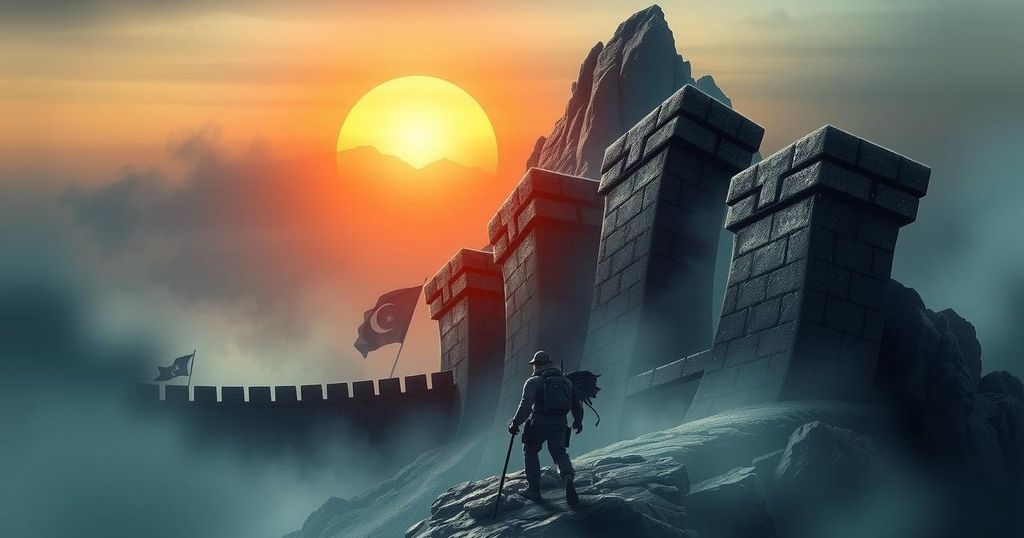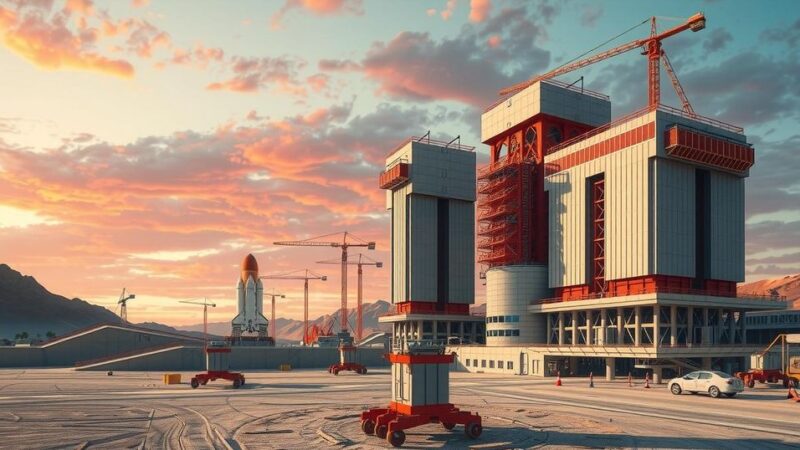Hezbollah faces significant challenges after substantial losses in conflict with Israel and a shifting political landscape in Lebanon. The recent elections indicate diminished power for the group, while public discontent over destruction may weaken its support. Hezbollah’s future as a military entity is uncertain and could hinge partly on Iran’s strategic decisions, as local populations demand stability and reform.
On January 26, thousands of displaced Lebanese attempted to return to their homes in southern Lebanon, where many discovered their residences had been obliterated by over a year of conflict. Carrying Hezbollah flags and playing revolutionary music, they mourned their losses amidst the rubble, marking the end of a deadline for Israeli troop withdrawal, as stipulated in a ceasefire brokered by the U.S. and France. This also entailed the removal of Hezbollah’s military presence, complemented by the deployment of Lebanese soldiers in southern regions. However, the execution of the ceasefire has been contentious, with accusations exchanged between Israel and Lebanon regarding the agreement’s implementation.
The period following the ceasefire has seen violence, with Israeli forces killing at least 24 individuals, including a Lebanese soldier. Hezbollah, historically the dominant force in southern Lebanon, interpreted this unrest as an opportunity to assert its strength, despite the significant toll it suffered in its conflict with Israel. With sweeping changes in Lebanon and shifting power dynamics across the Middle East, Hezbollah faces uncertain prospects.
Hezbollah’s influence, supported by Iran, has solidified its position as Lebanon’s strongest military entity, often overshadowing the Lebanese army. Since the onset of hostilities in October 2023, the group launched an offensive at a time when Israel’s military campaign in Gaza intensified, leading to unprecedented losses, including the deaths of over 4,000 people and the destruction of Hezbollah-supporting areas.
Recent changes in Lebanon’s political landscape signal Hezbollah’s waning control. The parliament finally elected a new president, Joseph Aoun, who is aligned with Western interests, following a two-year political impasse largely attributed to Hezbollah’s obstruction. With the appointment of Prime Minister Nawaf Salam, Hezbollah faces challenges as its political maneuvering has been curtailed.
With its base suffering from the aftermath of violence, the group’s narrative of victory contrasts sharply with the battered realities of their communities, which have sustained damages exceeding $3 billion. Hezbollah has attempted to pacify its supporters, but rising discontent presents a real threat, as people may hold them accountable for their hardships. Analysts suggest that if conditions do not improve in the coming months, the group’s support may decline significantly.
The tension between Hezbollah and societal sentiment remains rife, as their presence in non-Shia areas is often met with resistance. The group’s military capabilities allow it to invoke fear in potential opposition, with experts warning that pressure against Hezbollah might provoke violence. Still, Lebanon’s new leadership hints at a desire for reforms that could target Hezbollah’s military existence, acknowledging the need for comprehensive changes to resolve longstanding issues.
Ultimately, Hezbollah’s future as a military force may be determined by Iran rather than its local political dynamics. Regional developments and Iran’s capacity to reinforce Hezbollah are critical. Disarmament discussions, linked to broader negotiations involving Iran’s nuclear program, also introduce complex scenarios where Hezbollah’s role could shift significantly. The Lebanese populace is increasingly eager for stability, hinting that the group’s prior dominance may fade as they seek a more stable national identity.
Hezbollah has established itself as a formidable political and military force in Lebanon, significantly influencing the country’s dynamics over decades. Its backing from Iran has been crucial in reinforcing its military capabilities, allowing it to play a critical role in regional confrontations against Israel. The recent conflict has, however, raised questions about its enduring control and the group’s capacity to survive amidst changing political landscapes and internal discontent within Lebanon. The evolution of Lebanon’s political scenario, following the election of a new president, reflects mounting expectations for reforms that could challenge Hezbollah’s longstanding dominance and alter its future significantly. The implications of the conflict have transcended local borders, making regional dynamics, particularly Iran’s influence and strategic recalibrations, vital to understanding Hezbollah’s prospective trajectory. With the international community and local citizens demanding accountability and stability, the groundwork is laid for potential shifts in Hezbollah’s operations, raising broader questions about its military existence and political legitimacy moving forward.
In summary, Hezbollah’s future appears precarious following its substantial losses and the evolving political landscape in Lebanon. The group may no longer maintain its prior dominance, facing an environment marked by public discontent and political pressure for reform. With Iran’s role crucial in shaping Hezbollah’s military identity, internal and external challenges may compel the organization to reconsider its approach, potentially gravitating towards a more integrated political participation rather than continued militarization. The desire for stability among the Lebanese populace may further drive calls for fundamental changes, underscoring a pivotal moment in Hezbollah’s evolution.
Original Source: www.bbc.co.uk





